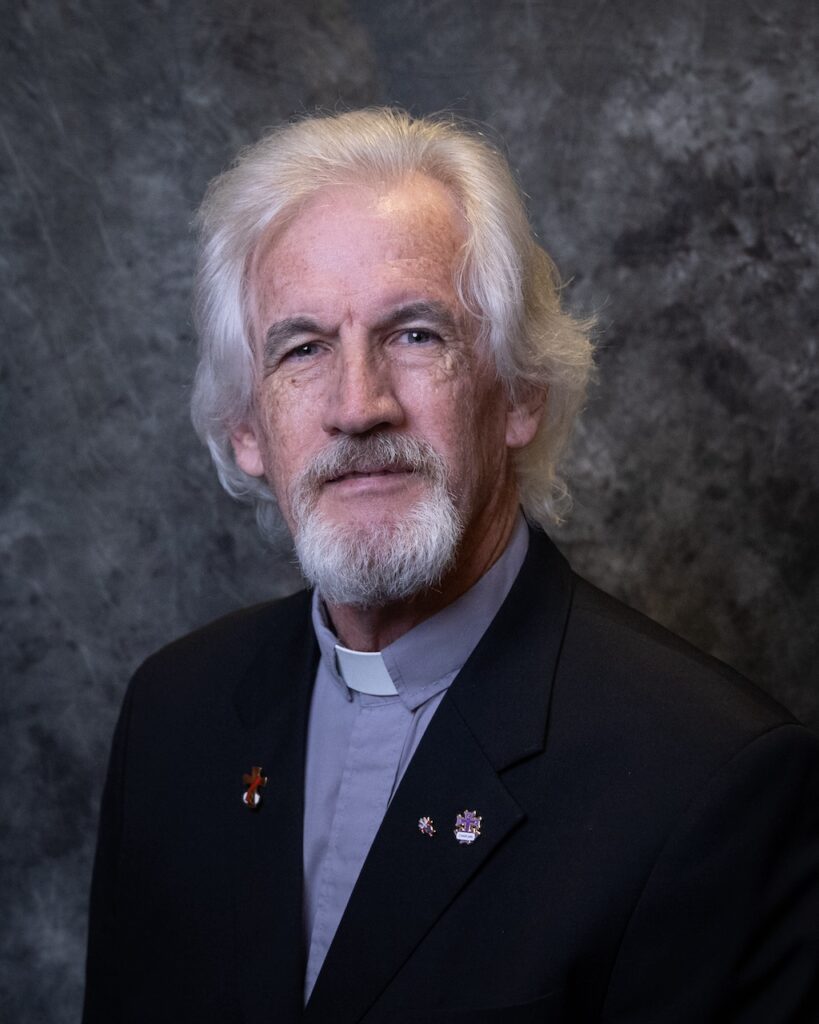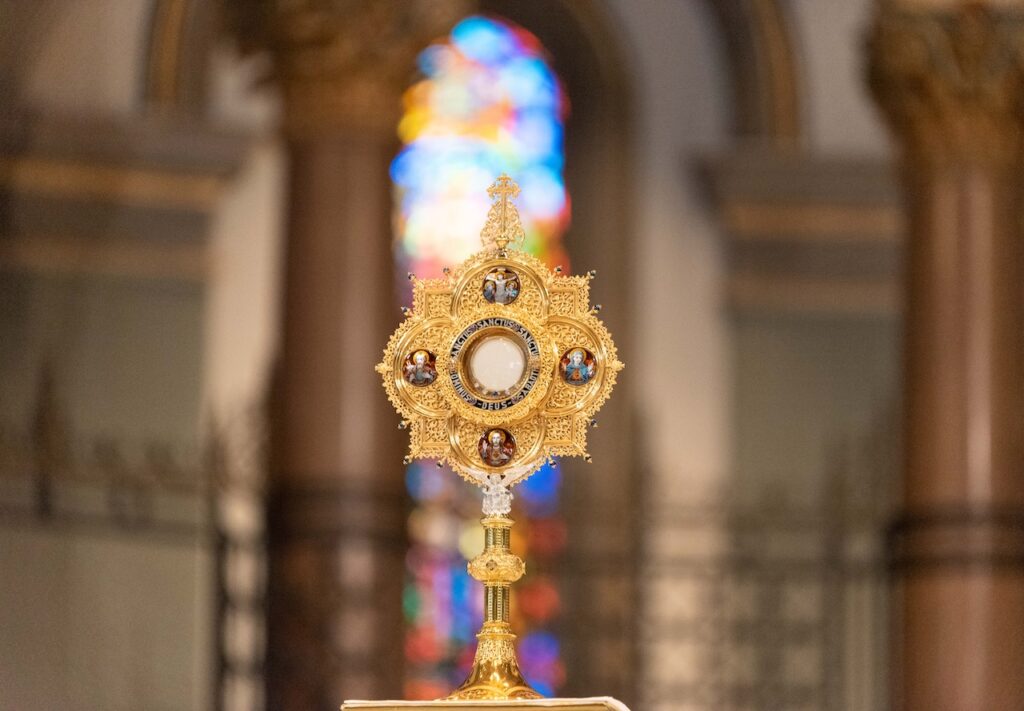Reflection on the Mass readings for June 2 (The Most Holy Body and Blood of Christ)
Exodus 24:3-8
Psalm 116:12-13, 15-18
Hebrews 9:11-15
Mark 14:12-16, 22-26
Usually when we have a feast like this weekend’s Solemnity of the Most Holy Body and Blood of Christ, or last weekend’s Solemnity of the Most Holy Trinity, someone asks: “Don’t we celebrate this every weekend?”
I use the analogy of Mother’s Day. We honor our mothers every day of the year – at least I think we should. Yet, we take one Sunday of the year, Mother’s Day, to celebrate our moms in a special way. So, too, we select Sundays throughout the year to celebrate the foundational beliefs of our faith – this week, the Solemnity of the Most Holy Body and Blood of Christ.
In “Sacra Pagina: The Gospel of Mark,” Jesuit Fathers Daniel Harrington and John Donahue discuss how the covenant God made with Israel in the first reading prefigures the one made through the blood of Jesus. The first covenant was confirmed in the sacrifice of animals and sprinkling of the blood upon the people. It also required continual offering of sacrifice to God as a sign of this covenant.
The new covenant between God and his people is confirmed not through the sacrifice of animals but through the blood and water poured out in the sacrifice of Jesus. This covenant does not require continual sacrifice. Jesus did that once for all because he lives forever. We are blessed to take part in this covenant, in this sacrifice, through the presence of the body and blood of Christ in the Eucharist.
I think the words Jesus uses make it clear what is intended. Jesus says, “Take it; this is my body” (Mark 14:22) and then “This is my blood of the covenant which will be shed for many” (Mark 14:24). The bread and wine become Christ’s body and blood. We have this wonderful gift, the real presence of Christ in the Eucharist.
The United States Conference of Catholic Bishops (USCCB), in its 2021 document “The Mystery of the Eucharist in the Life of the Church,” refers to the Eucharist as the “source and summit of our Faith.” It is what draws us together and what sends us forth. The Eucharistic Revival we are going through is so needed because there have been studies that show only about 30% of Catholics believe in the real presence of Christ in the Eucharist.
I wonder if it is not so much that they don’t believe, but rather they don’t want to believe. Not believing frees them from responding to what the Eucharist calls us to and sends us to be.
St. Augustine said, “If we receive the Eucharist worthily, we become what we receive” (Easter Sermon, 227). The old adage, “You become what you eat” takes on special significance for us as Catholics. The body and blood of Christ we receive should change us. If it doesn’t change us, then the change that has taken place on the altar has meant nothing to us.
The Eucharist should be the point to which we are drawn and the point from which we are sent. We are called to this sacrament and then are sent to be Christ’s presence in the world.
Every time we receive the Eucharist, the words of St. Teresa of Avila should ring true for us: “Christ has no body now but yours, no hands, no feet on earth, but yours. Yours are the eyes through which he looks compassion on this world. Yours are the feet with which He walks to do good. Yours are the hands with which He blesses all the world.”
 Deacon Christopher Colville serves at Church of the Redeemer, Mechanicsville.
Deacon Christopher Colville serves at Church of the Redeemer, Mechanicsville.

